Gender Equality


Home » Gender Equality » SDG 5- Gender Equality: Unfinished Business – Part 1
SDG 5- Gender Equality: Unfinished Business – Part 1
Read Part 2
We’ve made cursory reference, on a number of occasions, to gender equality in Israel. It is time to expand on this burning issue.
There has been some fanfare around the fact that the new government’s 27 ministers include nine women – the highest number in the country’s history – with three of them included in the more exclusive Security Cabinet. A similar jump in the number of government ministries’ Directors General – from three to nine – has also drawn attention.
The Israeli army, traditionally seen as a societal equalizer, also appears to be undergoing a positive trend: the Defense Minister just appointed its second-ever woman major general (a member of the exclusive General Staff); the military recently decided to deploy its first all-women tank crew along the border with Egypt; and a few months ago the Chief of Staff announced he would seek to raise the number of women officers by 50% in the next five years.
There’s a flipside to everything, of course. During a recent conference the Social Equality Minister addressed the subject of women’s retirement age and emphasized in a quite straightforward fashion: “We should take the opportunity to correct distortions that discriminate against women in the labor market, to create structural changes – for example, the lack of early childhood educational frameworks that harm women in the early stages of their careers.”


Wage gaps in the job market also constitute one of the most acute issues when it comes to promoting gender equality in Israel. According to prevalent estimates women earn about 30% less than men; among OECD countries, Israel is ranked third from the bottom in this context. The past year of crisis hit women particularly hard; the resulting harm could very well linger over time.
The work-life balance challenge is one issue raised in the wage-gap context. In an effort to bring gender equality to that area, the Finance Ministry launched a program earlier in the year which encourages fathers to exercise their parental rights; In this context, as of July civil servants may now perform overtime from home. This, against the backdrop of a study released by Israel’s Civil Service Commission showing that 64% of mothers are at home with their children during after-school hours as compared with 46% of fathers. According to the study, fathers who are inclined to leave work early but refrain from doing so generally fear perceived harm to their job status.
Outside sources reflect the local understanding that alongside progress that has already been made there is a continued need for improvement. In this context, a recent study by the German neobank N26 ranked Israel 30 out of 100 countries when it comes to female opportunity and achievement. The country placed high with regard to women’s access to education as well as their numbers in entrepreneurship and STEM positions; it ranked lower in areas such as the number of women in management roles and government, as well as with regard to gender-related legislation.
Gender equality in Israel appears to be moving in the right direction, albeit efforts to this effect must be ongoing. The country’s women – 51% of the population – deserve an acceleration of the process that will guarantee them full opportunity, as befits their undisputed contribution to the Jewish state.
Related articles


SDG 5- Reproductive Rights Reform
Gender Equality Just before all the noise surrounding the recent fall of Israel’s government, something no less ground breaking occurred: the Health Minister – who


SDG 5-She Codes; Her Way to High-Tech
Gender Equality Israel, a top 20 County in the Global Innovation Index 2018, fourth in Bloomberg’s innovation index and a recent report named Tel Aviv


SDG5-Will Israel’s New Budget Advance SDGs? – Part 2
Gender Equality Read Part 1 In Part 1 of this series we presented a bird’s-eye overview of Israel’s new budget. Here we’ll drill down on


















